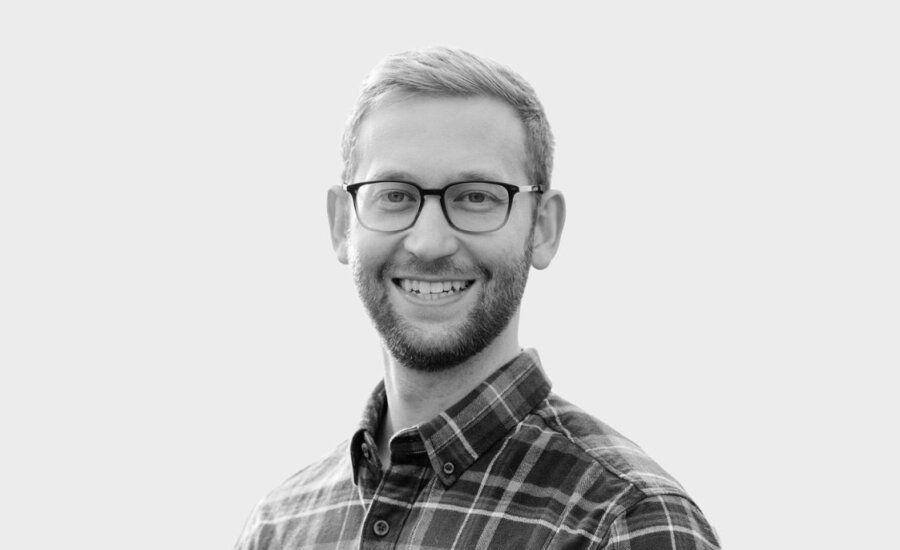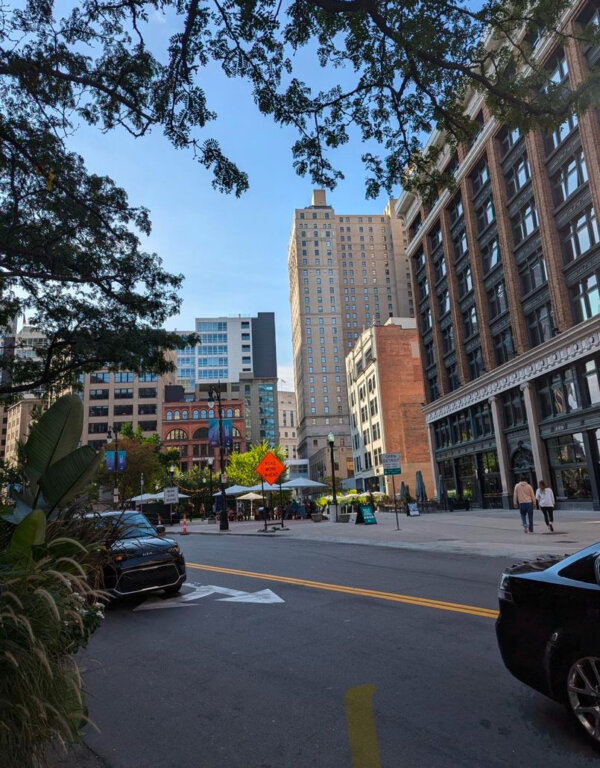Justin Dallaire on making the right money decisions for you (not your bank)
MoneySense’s senior editor, Justin Dallaire, answers the My MoneySense questionnaire for MoneySense’s 25th anniversary.
Advertisement
MoneySense’s senior editor, Justin Dallaire, answers the My MoneySense questionnaire for MoneySense’s 25th anniversary.

Justin Dallaire joined the MoneySense team three years ago, bringing with him a wealth of business reporting knowledge. He oversees some of our most popular features, including the annual Where to Buy Real Estate list, first-time home buyer guide, credit card rankings and a wide range of mortgage and insurance articles and features. Dallaire, who studied journalism at Toronto Metropolitan University, has also been published in Strategy, The Walrus, Toronto Life, TVO.org and Broadview.
Below, the busy dad of one (two, if you count the dog) shares his thoughts on money advice, his definition of financial success, and more.
I admire people who work for organizations like Credit Canada and the Credit Counselling Society. If you’re able to help someone get out of a stressful money situation or avoid getting into one in the first place, you’re a hero in my books. For the same reason, my money “anti-heroes” tend to be billionaire tech founders whose wealth was built on creating new sources of stress in our lives.

Like most people, I don’t feel I have much of it these days. I joke that I have two kids at home—a daughter, who’s one-and-a-half, and an Old English sheepdog, who’s four and often needier than a toddler! I’m usually at some park or another, be it a playground or a dog park. And I spend a fair bit of time trying to prevent my kids from hurting, feeding and slobbering on each other.
I love working in journalism because I enjoy learning new things and expressing myself creatively. If I had enough money to never work again, I might still be a journalist for fun. But I can see myself just as easily spending my days learning to cook really well, becoming handy at building and fixing things around the house, or pursuing other creative interests without the pressure of having to make a career out of them.
Probably Pokémon cards. My brother and I had one of those binders filled with sleeves of plastic-covered cards in mint condition. We eventually gave them away, but they’re now considered alternative investments and would be worth a lot of money today.
During high school, I worked at a few different Tim Hortons locations. After that, I gave tours and cleaned wineglasses at Château des Charmes winery in Niagara-on-the-Lake, Ontario. Things got a lot more fun when I turned 19 and could actually serve wine at the tasting bar. I was pretty good at making it seem like I knew stuff about wine. Because I speak French, people often thought I was the owners’ kid.
Don’t assume the financial industry has your best interests at heart, and consider whether general guidelines actually apply to you. When my wife and I bought our house in 2021, we had a number we felt comfortable paying based on our own calculations. Had we gone to our lender and said, “Tell us how much we can afford,” our budget would have been much larger. The Canadian real estate market was nearing its peak at that time, and we ended up going beyond our initial budget. But had we gone with what we could afford on paper, according to Canada’s mortgage rules, I’m not sure how our finances would have survived when interest rates took off in early 2022.
My mom may not have used these exact words, and it’s not advice per se, but she was the first to teach me that it’s not how much you earn that’s important, but how much you save.
Get an adjustable-rate mortgage as a first-time home buyer when the Bank of Canada interest rate is just 0.25%—when it has literally nowhere to go but up. It’s difficult for me to recall what the long-term economic outlook was when we bought our house in 2021. Frankly, I wasn’t working at MoneySense yet, and I wasn’t as plugged in to these things. I still think it was poor advice, because it meant taking more risk than we probably should have for our age and financial situation.
All at once. When I worked at Tim Hortons, we used to collect tips in a jar. It was pocket change—not the kind of tips that payment terminals prompt you for these days. Most of my co-workers spent this change on coffee or donuts on their way out, but I collected mine until I had a few hundred dollars. It felt more significant. I would feel the same way about any large sum of money.
Expect to be the victim of a “cybersecurity incident” at some point in your life. Having a strong password doesn’t cut it anymore. In fact, your online security isn’t even entirely within your control. I’ve been notified three times of data breaches involving my personal information, and none of them was due to having a faulty password. One time, my SIN was leaked, and the impacted company was a technology provider to a third-party vendor used by a mutual fund company I no longer had a relationship with. I didn’t even know that the vendor, or its technology provider, existed. I don’t know what the best cybersecurity action plan looks like—I wish I did. However, being aware of the problem is a good first step. Read my feature: “I’m a victim of CERB fraud—years later, I’m still dealing with the tax implications”.
A lot of young people believe it gets easier with age. That’s not always true. If you follow a traditional path, your most expensive years are likely to hit in your 30s or early 40s. But people are increasingly postponing major life events, like having kids or buying a home, which delays those big expenses. It’s important to start saving and investing now, rather than waiting until you’re over your most expensive years.
Lowballing my salary expectations when applying to my first job in journalism, thinking it would get the employer’s attention. It did. But I’m not a great negotiator, so you can imagine how that worked out.
You’ll hear people say, “Spend on experiences, not things,” because the former provides more meaning in your life or contributes to long-term feelings of happiness. I believe this is generally true, but it also comes from a place of privilege, because it assumes your basic human needs are already being met. I think it’s more useful to encourage people to rethink the value of goods we take for granted, like a T-shirt. Clothing has a lot of value. It’s our culture of disposability that makes it less valuable. You should be able to buy a T-shirt at a reasonable price and expect to wear it regularly for a decade, if not more.
A used Honda HR-V. It was the first time my wife and I financed anything. The previous owner had basically driven it home and back to the dealership, because it had a laughably small amount of kilometres on it. That detail still saved us some money.
My view of financial success is living stress-free, whatever that means to you. Some people are comfortable with debt, others not so much. As long as your debt doesn’t cause stress for you or others around you, I don’t think there’s anything wrong with it.

For our wedding anniversary, my wife and I recently went to Detroit. Romantic, right? We wanted a bit of an adventure, and I had read good things. We had a great time. We saved up so we could stay in an expensive hotel and eat at some nice restaurants. There’s a lot happening in downtown Detroit right now. Being child-free for a couple of nights was a real treat.
Fleeced: Canadians Versus Their Banks by Andrew Spence. MoneySense’s editors have been assigning a lot of articles about why stuff is so expensive in Canada—including rent, pet care and gas. Spence’s book examines that question as it relates to Canadian banking, from why we pay such high account fees to why we don’t have access to 30-year mortgage rates like in the U.S. We published an excerpt as part of the series.
At least one gift card, because I don’t want to miss my one shot at using it. Right now, it’s a $20 gift card for Dairy Queen. I’ve had it for about a year.
My acoustic guitar, which I rarely play anymore. I keep it tucked in a corner of my living room. It reminds me of how much my life has changed in just a few years. Early in the pandemic, I had no dog and no kid. I played all the time.
To spend $20 at Dairy Queen.
Own, but know that you might be financially worse off than if you rent.
Buy.
Both.
Budget, but it doesn’t have to be complicated or involve a spreadsheet.
Share this article Share on Facebook Share on Twitter Share on Linkedin Share on Reddit Share on Email